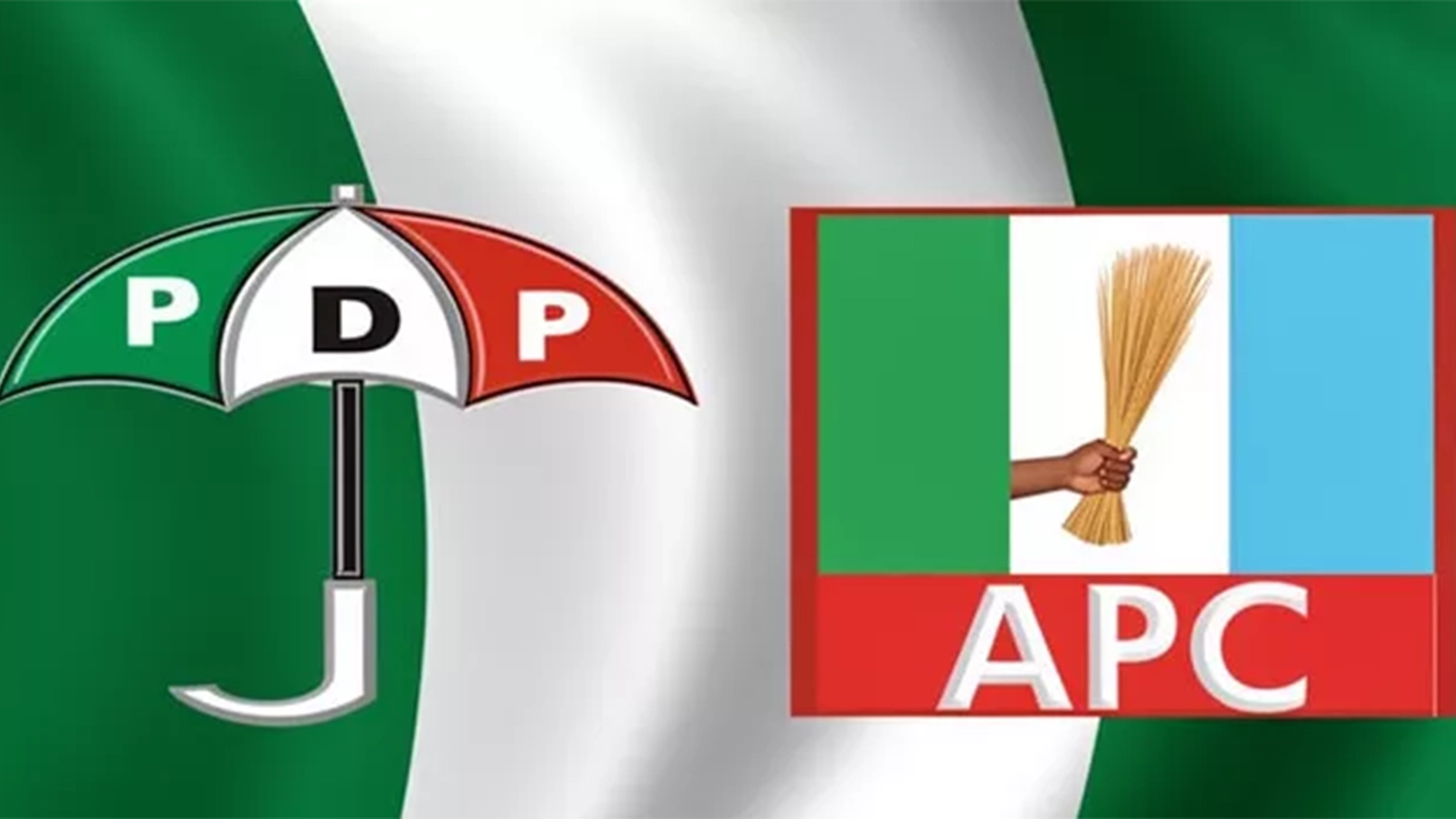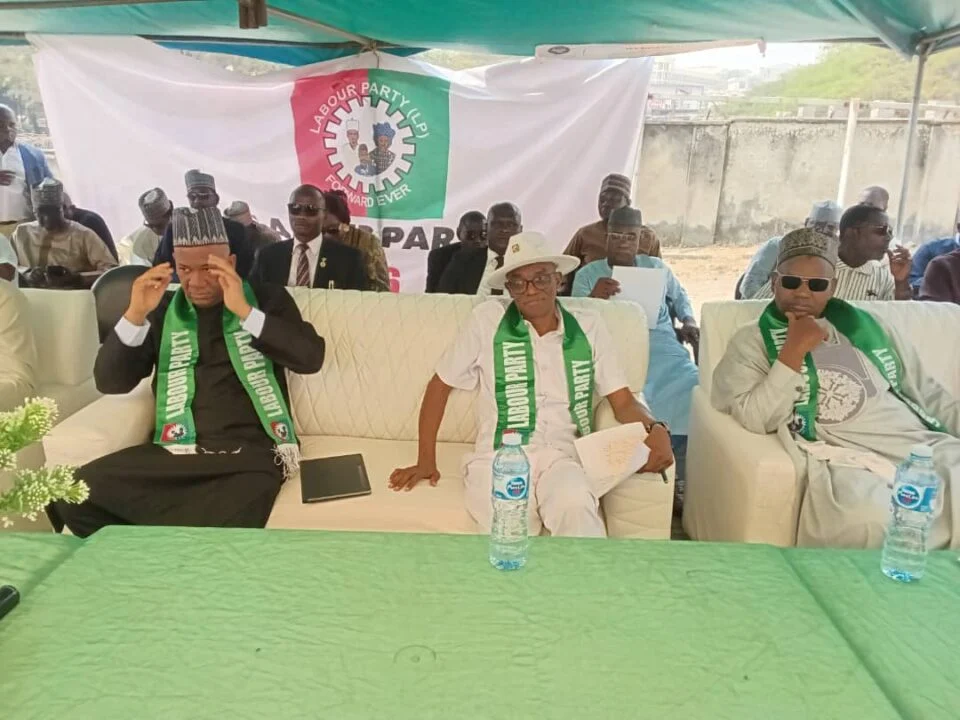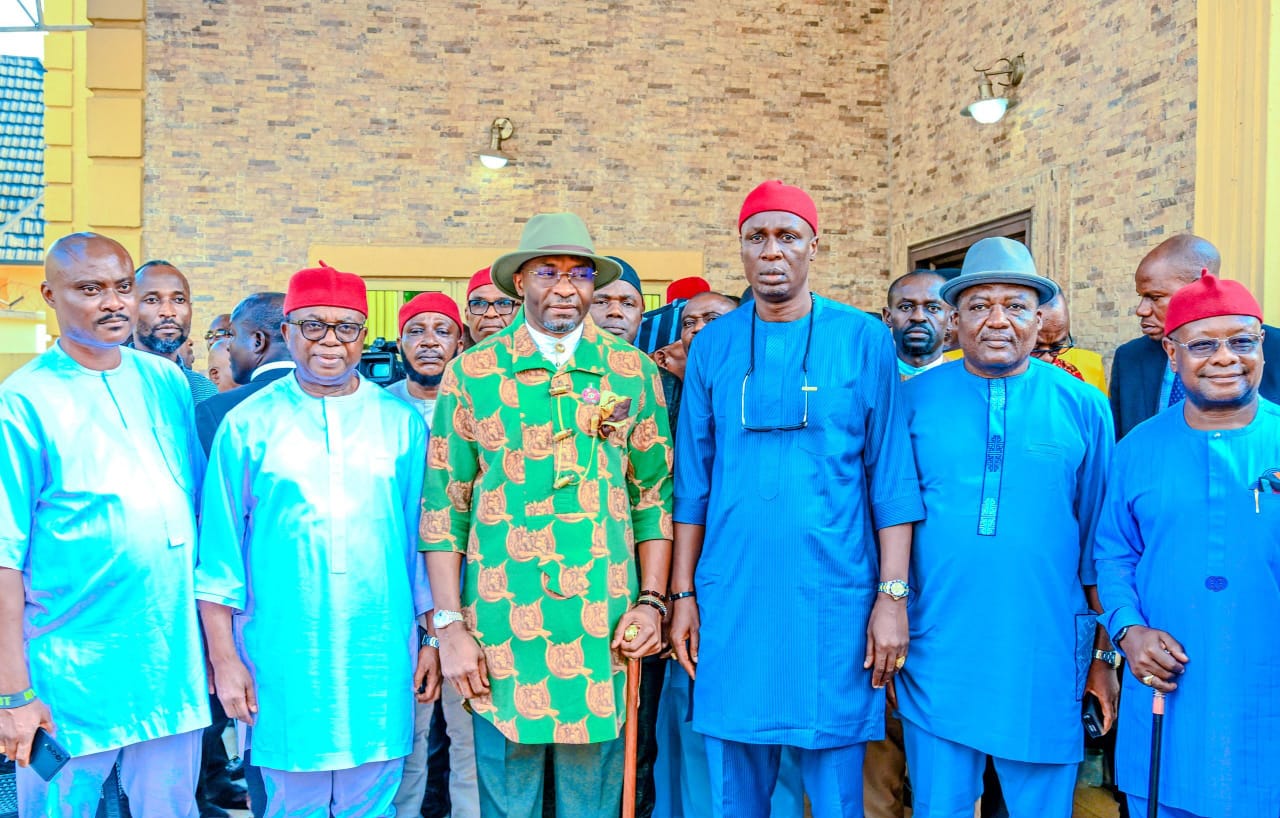
The All Progressives Congress (APC) and Peoples Democratic Party (PDP) in Ekiti State held their primaries for June 18 governorship election on Wednesday 26 and Thursday 27 January respectively.
The conduct of the primaries were not without drama and controversies that usually followed such exercises, as some aggrieved aspirants either boycotted or rejected the outcome due to what they alleged as unethical practices schemed to favour certain aspirants.
APC acrimonious primary
The seed of how a candidate would emerge in APC was sown during the revalidation of membership of the party in 2021. It was at this point that Governor Kayode Fayemi who is the leader of the party, effectively took over the structures of APC by making sure those in the register across 16 local governments are in his firm grip.
Also, in the latter parts of 2021, when the congresses of the party were held at all levels, the governor further strengthened his hold on the structure of the party by ensuring core loyalists emerged as party executives from wards to local councils and state.
Analysts are of the view that it was not surprising that Fayemi’s anointed aspirant became the candidate of the party because the governor placed himself in a position to determine who gets what in Ekiti APC. Although Fayemi has continued to deny that he had a favourite aspirant among those who contested for the party’s ticket last week, his body language and disposition of his close aides towards the former Secretary to the State Government, Mr Biodun Oyebanji confirmed the obvious.
The seven aspirants that contested with Oyebanji are Otunba ‘Demola Popoola; Kayode Ojo; former Minister of State for Works, Prince Dayo Adeyeye; Oluwatoyin Afolabi; member representing Ekiti South 1 in the House of Representatives Mr Olufemi Bamishile; former commissioner for Utility, Bamidele Faparusi and the Senator representing Ekiti Central, Mr Opeyemi Bamidele.
Curiously, all the aspirants were parts of revalidation of membership and congresses that put party structure in the control of Fayemi and they did not raise eyebrow when he was mobilising members to populate the party.
Given conditions that preceded the primaries, political watchers are of the opinion that no matter the mode of primary adopted by the party, whoever the governor supports would definitely have an edge. Besides having the structure of the party in his kitty, Fayemi is also said to have good a relationship with Governor Mai Mala Buni-led national caretaker committee of the party that nominated the electoral committee headed by Governor Mohammed Abubakar Badaru, political associate of Fayemi in the Governor’s forum.
Although, direct mode of primary was adopted by the leadership of the party in what was said to be the outcome of severe pressures mounted by the seven aspirants, analysts did not mince words to say that the aspirants were wrong in their judgments that direct primary would create the needed level playing field.
However, it was too late before they realised that the primary had been won and lost even before the election.
Setting the stage for the primary, Badaru said the committee got instruction to adopt option A4 direct primary in conformity with the party’s guidelines to conduct the poll, saying nothing would stop his resolve to organise a primary that would be acceptable to all aspirants.
He said: “The party has a guideline in the conduct of direct primary, which is accreditation of party members after getting their voter cards and party membership slips carrying their photographs and their names should also be contained in the party registers in their respective wards.
“After this is done, members would now queue behind the agents of their preferred aspirants in each ward before counting. Whatever that is counted across the wards and acceptable to all agents that will be collated and announced accordingly.
“I have my integrity to protect just like every other member of this committee. Nobody will be cheated. I have the assurance that we will end this primary with all aspirants commending us for doing a good job. We shall all laugh together after the process”.
He therefore directed each of the aspirants to nominate 20 persons that would work with the committee as local organising committee in the collation and transmission of results, saying he adopted the modality to make the process more credible and acceptable.
He appealed to the aspirants to warn their members against distrusting the election and abuse their opponents to avert crisis that could truncate the process.
Badaru said, “Don’t because you are looking for position or ticket destroy the lives of others or engage in character assassination or campaign of calumny. Do your own best and allow the voters to do the rest, because this will not help our party.”
These assurances from Badaru temporarily assuaged the growing concerns of the aggrieved seven aspirants. They felt reassured that the committee would create the needed level playing field.
But when they sighted the composition of members of the election committee, they raised dust and alleged that the lists were made of core Fayemi aides, Assembly members and asked for discontinuation of the primary.
The aggrieved aspirants marched down to Ekiti State Police Headquarters and APC secretariat to express their displeasures about alleged manipulation of primary in favour of Biodun Oyebanji, being supported by Governor Kayode Fayemi.
Even though the aggrieved aspirants were popular politicians in Ekiti and national politics, they were beaten in the game. The timing of their boycott of the primary, some said, was too late because, the accreditation of voters had commenced. Besides, January 29, 2022 timeline set by Independent National Electoral Commission (INEC) was around the corner, which left the party with no time to contemplate rescheduling the exercise.
What was more, some were of the opinion that three aspirants from Ekiti South who have been agitating for power shift could not subsume their personal interests and pick one person among them to slug it out with other aspirants from other senatorial districts. To these analysts, that would have shown that they actually wanted power shift to the South.
Now that a candidate who will fly the flag of the party on June 18 has emerged, the party is said to have begun reconciliation and fence mending. While some party leaders believe that some of the aggrieved aspirants holding elective positions must be persuaded to retain the positions, some said their roles in working with the party and ensuring its victory should be yardstick for their compensation after losing the governorship ticket.
But with the determination of some of the aspirants to contest the primary in court, the last has not been heard about Ekiti governorship primary.
PDP and emerging godfather
Just as it is in the ruling APC, former Governor Ayodele Fayose has emerged the godfather of Ekiti PDP, whose anointed candidate has emerged as the party’s candidate. He has achieved that for the second time.
What happened at the recent PDP primary election was a repeat episode of the 2018 scenario. Prior to the party primary of that era, Fayose had anointed his then deputy, Professor Kolapo Olusola Eleka as the “preferred sole candidate” of the party. When the primary eventually held, Eleka emerged as the candidate.
Due to controversies that heralded his choice, PDP lost the governorship to APC, despite their power of incumbency. As if the party is moving in circle, the ex-governor again, anointed his political associate and former chairman of the party, Mr Bisi Kolawole as his preferred candidate.
The emergence of Kolawole was not a surprise to many. The party congress held in March 2020 was seen as the beginning of the plot by Fayose to get hold of the party structure. Even though the rival faction headed by Senator Biodun Olujimi held parallel congress, it was never to last long before Fayose had his way.
Olujimi’s faction lost its case at the High Court and Appeal Court. Even when the case was still pending at the Supreme Court, the Uche Secondus-led National Working Committee (NWC) went ahead to officially recognise the executive members produced by Fayose’s group at its congress.
Despite efforts of the new NWC headed by Senator Iyorchia Ayu to reconcile the warring parties, there were still grey areas. After series of reconciliation meetings, the spirit of compromise expected from the two factions to unite ahead of the primary did not happen.
When the congress for the adhoc delegates of the party held on January 15, the peace accord fell like badly arranged cards. It became a fight between Fayose’s Osoko Political Assembly and Olujimi with other aggrieved aspirants teaming up to battle the former governor.
Although Fayose, who is believed to be “master of the game” won by recording a landslide victory in the delegates congress, to pacify aggrieved aspirants, national leadership of PDP annulled the delegate election. The party went ahead to approve indirect primary mode and used automatic and statutory delegates lists for the election.
Yet Fayose got what he wanted because the automatic/statutory delegates were in his kitty. The list was essentially, members of the executives produced by his faction at the controversial congress.
Immediately Olujimi saw the list adopted for the primary, she pulled out of the contest held at Pastoral Centre, Ado Ekiti and claimed the accreditation exercise was fraught with irregularities. She alleged Governor Udom Emmanuel-led electoral team of doctoring delegates list was in favour of a particular aspirant.
She noted that other aspirants had full complement of the delegates from local governments given to them by the party while she was given only 12 from her local government.
According to her, “I pulled out because every other aspirant has full complement of delegates from their local government. It pleased the party to give me only 12 automatic delegates in mine”.
“I have six local governments in my district as a sitting Senator. They gave full compliments of delegates to somebody in four of my local governments and the two that were left, including my own local government. They gave me twelve delegates out of seventy-eight.”
“And in the second local government, they gave me only ten delegates. How do you go from your home with a broken hoe and then, you are going to ask the people to give their own to you to till the ground? I feel maybe it is because of my gender or maybe the party feels I have not done enough for it. That is why they would have done that to me. So, when they’ve done that to me, it didn’t make sense to continue with the process”.
Fayose’s candidate won by landslide and former Governor Segun Oni trailed far behind him. Oni’s supporters have rejected the outcome of the election, which they described as lacking in integrity.
Oni is a popular aspirant more than others. However, he did not have a structure in the party because he dumped PDP in 2014 when he said he could not cohabit the platform with Fayose. Oni publicly worked against PDP both in 2014 and 2018 elections, only to return to the party in 2019 to contest for the highest position in the state in 2022, without aligning with those who put together the structures of the party.
Many non-partisan residents in the state believe Oni ought to be PDP’s joker for the election. Ordinarily, people thought those who voted at the PDP primary should consider who could win election for the party, but unfortunately this was not the case. They voted in line of primordial sentiment such as monetary inducement, which all aspirants allegedly offered.
The PDP leadership has a task to reconcile the aggrieved aspirants. Aspirants themselves should know that party politics is about strategy and only one winner can emerge at a time.






